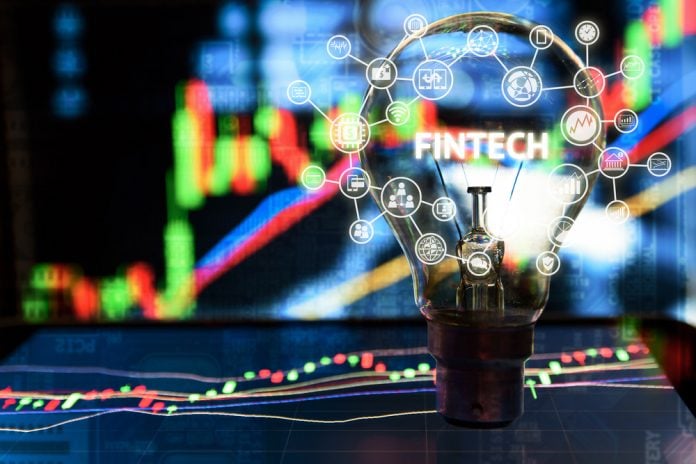In most industries, 2020 was a rough year for any would-be Nostradamus. In fintech, though, COVID-19 merely accelerated trends that experts had been predicting for years: more digital payments, new financing models, and greater e-commerce enabled by both.
So despite the ongoing pandemic, political chaos, and other wild cards, as we enter the second month of 2021, Ralph Dangelmaier, CEO of BlueSnap, and Richard Counihan, CEO of DigniFi have shared their insight on what they believe will be the trends that shape this year.
“Corona-Free” payments will outlast the coronavirus pandemic.
In March, news spread that banknotes could spread COVID-19 and that the World Health Organisation was recommending contactless payments to mitigate the risk. The WHO says it was “misrepresented,” but there was no turning back. No one wanted to touch cash, credit card terminals, or paper checks anymore (even though coronavirus primarily spreads from person to person). Everyone took payments digital. Now, “Corona-Free” (contactless) payments are here to stay.
According to a new report from Visa, 82 per cent of small-to-midsize businesses worldwide have updated their operations to accept digital payments. Almost two-thirds of consumers surveyed by Visa prefer contactless payments, and only 16 per cent said they would revert to touch payments after the pandemic. NFC credit cards, digital wallets, and card-not-present payments will retain their momentum.
B2B companies are going Corona-Free too. Nacha reports that in Q3 2020, ACH volume for B2B payments had grown 12.1 per cent year over year, despite the economic slowdown. Businesses facing cash flow problems don’t want to wait a month or more for a check in the mail-especially if no one is at the office to process it.
Having invested in accounts receivable (AR) automation tools that text or email invoices out and auto-reconcile digital payments, businesses will not turn back. The ease, convenience, and speed of Corona-Free payments are too valuable to forego.
Buy Now, Pay Later (BNPL) will expand from B2C to B2B
On January 13, 2021, Affirm became the first of the high-tech installment payment platforms to IPO. Its shares opened at $49 on the NASDAQ and closed at $97.24. Crunchbase reports that 25 players in the Buy Now, Pay Later space (BNPL) have raised some $1.7 billion in private funding. Will these platforms fight each other to the death, or find new pastures?
From $30 t-shirts to $3,000 bicycles, consumers are electing to spread out payments. One-third of shoppers 18 to 37 say that BNPL has influenced their decision to complete a purchase. The results speak for themselves. Splitit, a BNPL provider (and BlueSnap partner), reports that its clients see an average 30 per cent bump in conversions and 20 per cent higher mean order value.
The APRs are competitive with credit cards, and many BNPL plans offer 0% interest if shoppers pay their balance within six months. The credit card industry is watching carefully. In December, Capital One Financial Corp became the first card firm to ban consumers from clearing BNPL debt with their credit cards, deeming the risks too high. Meanwhile, Visa and Mastercard are rolling out their own BNPL options (if you can’t beat them, join them).
The next frontier for BNPL is small-to-midsize businesses. Shops, restaurants, medical clinics, and tradespeople increasingly will turn to BNPL rather than open lines of credit—especially if they’re non-prime borrowers and in a rush to purchase critical equipment or supplies. Multiple BNPL players including Splitit, Afterpay, Cloudfloat and Openpay have their eyes on this space.
FinTech will make or break online car buying
In 1999, people thought it was nuts to buy shoes online. Zappos proved the naysayers wrong. Casper did the same with mattresses. Now it’s the auto industry’s turn, spurred by Carvana and Vroom. Among their key advantages is digital financing. Their shoppers spend a few minutes on a loan application and get instant approval. Dealers, once threatened by online car shopping, have embraced the shift. To compete successfully, however, their financing options need to gain parity with Carvana and Vroom.
Consumers don’t like going to a dealership where they’ll be brutalised by a financing guy for four hours. Thanks to COVID-19, they have even more reason to click for cars and apply for financing digitally. They want the same quick, seamless BNPL experience they can get for smaller, everyday purchases but for a car, which presents higher risk for the potential lenders.
If dealerships embrace modern financing platforms, they can outcompete Carvana and Vroom. With their local presence and community relationships, dealerships have an edge over those nationwide, impersonal platforms.
Death to payday loans
Payday lending, arguably the most predatory business model still legal in (most of) the U.S., is on its last leg. Now that BNPL, auto financing platforms, and other FinTech lending channels have gained traction, payday loans face extinction—if not through competition, then through regulation and legislation.
According to the Consumer Financial Protection Bureau (CFPB), a typical payday loan is for $500 or less, but its APR equates to almost 400 per cent (versus 12 per cent to 30 per cent for a credit card). 80 per cent of payday loans are rolled over or reborrowed, says the CFPB, meaning that a disturbing proportion of borrowers land in inescapable debt traps. In recent years, payday lenders have used lobbying groups and political donations to ward off regulation.
Their luck has run out. BNPL and auto financing platforms have become accessible to all smartphone owners and offer far superior terms. Under the Biden administration, the CFPB is likely to regrow its fangs. Federal-level action could address the hodgepodge of state regulations that shield payday lenders in some states while restricting them in others. Good riddance.
On the radar
Next year, perhaps we’ll weigh in on emerging trends: payment platforms tussling with political organisations, anti-crime regulations on cryptocurrency, and Big Tech’s inevitable foray into digital lending. It’s too early to call the ball on these.























